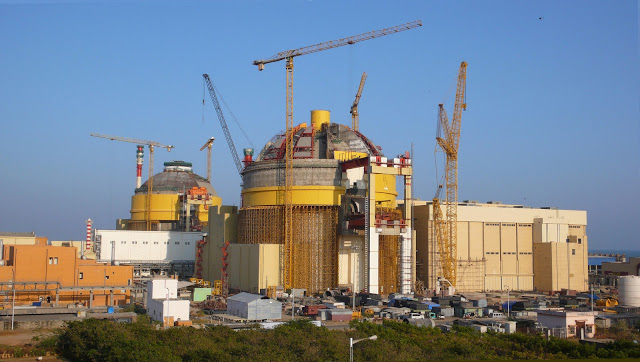The Fukui District Court in western Japan lifted an April injunction that was filed by a group of residents who said that a massive earthquake exceeding the facility’s quake resistance could cause a disaster similar to the Fukushima crisis following the March 2011 quake and tsunami.
The order paves the way for a resumption of the Takahama No. 3 and No. 4 reactors, operated by the Kansai Electric Power Co.
The utility plans to go ahead with loading fuel rods into the No. 3 reactor within days, and go through final safety checks before putting the reactor back online late January.
Takahama reactors could be a third and fourth to restart, while prospects for a fifth one, the Ikata reactor in Shikoku, southwestern Japan, are uncertain due to strong local opposition over evacuation plans in case of an emergency.
Prime Minister Shinzo Abe’s pro-business government wants to restart as many reactors as possible
2. India expects to seal a contract with Westinghouse Electric to build six nuclear reactors in the first half of next year, a government official said, a sign its $150 billion dollar nuclear power program is getting off the ground.
The proposed power plant in Prime Minister Narendra Modi’s home state of Gujarat will accelerate India’s plans to build roughly 60 reactors, which would make it the world’s second-biggest nuclear energy market after China.
India wants to dramatically increase its nuclear capacity to 63,000 megawatts (MW) by 2032, from 5,780 MW, as part of a broader push to move away from fossil fuels, cut greenhouse gas emissions and avoid the dangerous effects of climate change.

Brian Wang is a Futurist Thought Leader and a popular Science blogger with 1 million readers per month. His blog Nextbigfuture.com is ranked #1 Science News Blog. It covers many disruptive technology and trends including Space, Robotics, Artificial Intelligence, Medicine, Anti-aging Biotechnology, and Nanotechnology.
Known for identifying cutting edge technologies, he is currently a Co-Founder of a startup and fundraiser for high potential early-stage companies. He is the Head of Research for Allocations for deep technology investments and an Angel Investor at Space Angels.
A frequent speaker at corporations, he has been a TEDx speaker, a Singularity University speaker and guest at numerous interviews for radio and podcasts. He is open to public speaking and advising engagements.


